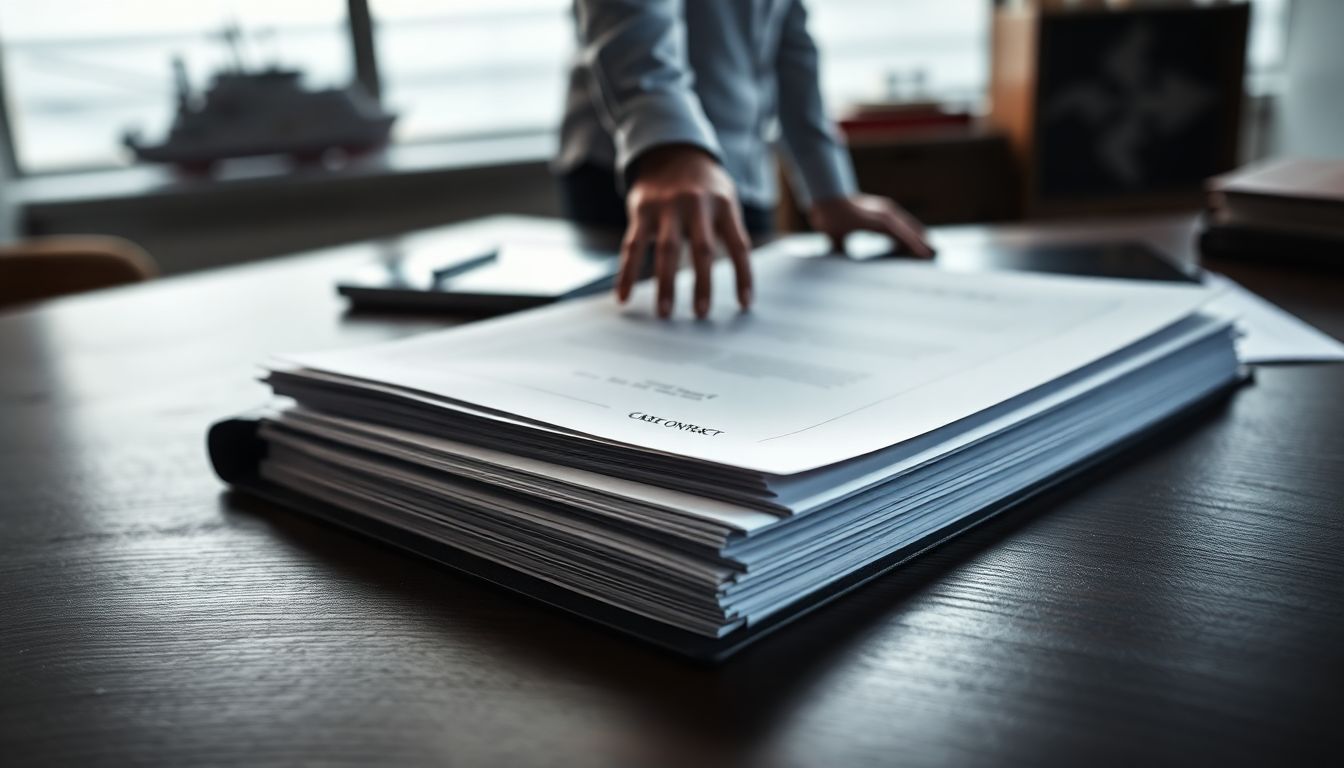
When an unexpected injury occurs while working offshore, it's crucial to understand your legal rights and the necessary steps to seek compensation. Offshore work can be perilous, and accidents can lead to serious injuries or fatalities.
The High-Risk Nature of Offshore Work
Statistics reveal that offshore workers face a significantly higher risk of injury compared to traditional jobs. According to the Bureau of Labor Statistics, maritime workers suffer injuries at rates far above the national average. The nature of offshore work, combined with the harsh environment, contributes to this reality.
Filing accident claims from offshore incidents presents unique challenges. Factors like jurisdiction, maritime law, and the specific nature of the job complicate matters. Understanding these challenges is the first step in seeking justice.
The Importance of Specialized Legal Counsel
Maritime law is a complex field. It encompasses rules and regulations that differ from land-based laws. An experienced offshore accident lawyer understands these intricacies and can navigate the legal waters effectively. Specialized legal counsel can make a significant difference in the outcome of your case.
Finding the Right Offshore Accident Lawyer
Identifying Specialized Expertise
When searching for a lawyer, prioritize those with expertise in maritime law. This knowledge enables them to handle offshore accidents skillfully. Resources like the Maritime Law Association can help guide your search for qualified lawyers.
Evaluating Lawyer Qualifications and Credentials
Look at the following factors when choosing an offshore accident lawyer:
- Track Record: Review their history of handling similar cases.
- Case Results: Check successful outcomes for past clients.
- Client Testimonials: Read reviews for insight into client satisfaction.
Key organizations like your local bar association often provide directories of qualified attorneys.
Gathering Evidence and Documentation
Documenting the Accident
Immediate documentation is critical after an accident. This includes:
- Taking photos of the scene.
- Gathering witness statements.
- Recording details of the incident.
These steps can enhance your claim significantly.
Preserving Crucial Evidence
Properly preserve vital documents such as:
- Medical records detailing your injuries.
- Employment records to verify work status.
- Incident reports filed by employers.
Expert witnesses can also bolster your case by providing professional insights.
Understanding the Claims Process
Initial Consultation and Case Evaluation
Your first meeting with a lawyer will involve discussing the details of the incident. Expect an evaluation where they assess liability and potential damages. This meeting sets the stage for your case.
Filing the Claim: Necessary Documents and Procedures
To file a claim, follow these steps:
- Prepare a detailed account of the incident.
- Gather necessary documents, including medical records, witness statements, and employment details.
Create a checklist to ensure all documents are ready to submit.
Navigating Insurance Companies and Legal Processes
Dealing with insurance companies can lead to delays. Often, they may deny claims or offer low settlements. An experienced lawyer can help navigate these hurdles and protect your interests.
Pursuing Your Claim and Seeking Compensation
Negotiating a Settlement
Negotiation strategies play a pivotal role in securing fair compensation. Your lawyer will likely discuss the strength of your case and the factors that can influence settlement offers.
Preparing for Litigation
If negotiations fail, litigation may be necessary. This process involves:
- Filing a lawsuit.
- Engaging in discovery to gather more evidence.
- Potential courtroom appearances.
While litigation can be lengthy, skilled lawyers prepare you for every step.
Types of Compensation Available
You may be entitled to various forms of compensation, including:
- Medical expenses
- Lost wages
- Pain and suffering
Real-world examples of successful offshore accident cases highlight the potential for substantial compensation.
Securing Your Rights After an Offshore Accident
Key Takeaways and Actionable Advice
Filing a claim involves several crucial steps, including:
- Finding a specialized lawyer.
- Documenting the accident effectively.
- Understanding the claims process.
Taking immediate action is essential.
Seeking Immediate Legal Assistance
Prompt legal action after an offshore accident is vital to securing your rights. Don’t hesitate to contact an offshore accident lawyer to discuss your situation. They can guide you through the complexities of maritime law and help protect your interests. Taking that first step can set the course for your recovery.
